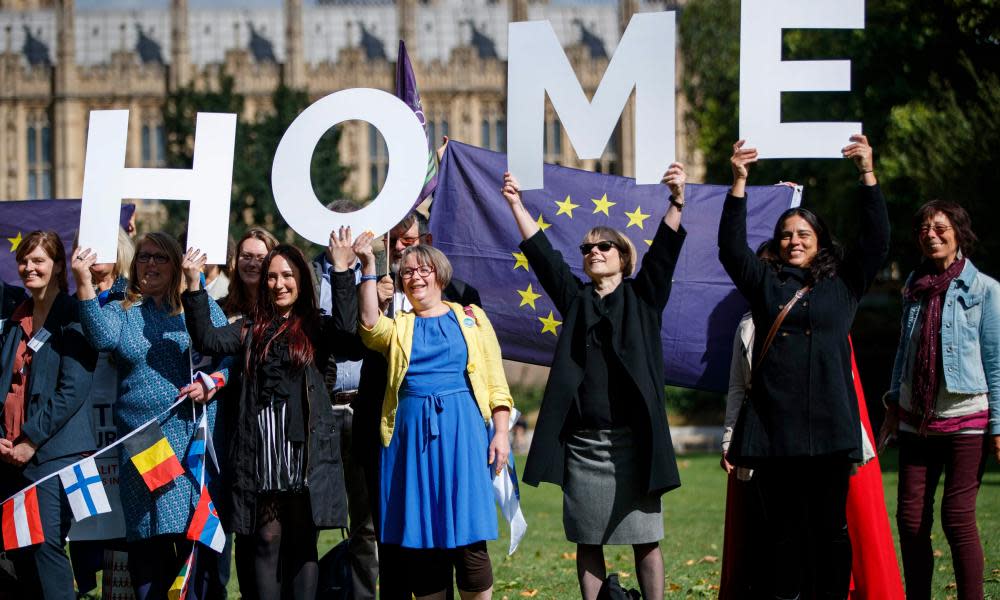UK urged to launch EU citizen registration drive in pubs and schools

The government needs to be far more ambitious in its plans to register the estimated 3.4 million EU citizens in the UK after Brexit, with outreach programmes in pubs, schools, hospitals and libraries, a thinktank report has said.
The Migration Policy Institute Europe recommended “outreach strategies” such as updating official guidance, but also allowing Britons in Europe and EU citizens in the UK to register to stay in “a range of accessible and familiar settings” which are less intimidating than official forms.
Without proper handling there could be a large “unauthorised population of Britons left without legal status” after Brexit, it said, warning that this could also encourage fraud.
It raised particular concern for Britons settled in the EU, noting that while Theresa May has been “forced to show her hand” and come up with a post-Brexit plan for EU citizens, this is not the case in other member states.
“Many EU countries have yet to begin planning for issues likely to affect their UK nationals after Brexit, with officials interviewed in a number of member states reporting they are unsure of whose remit these Britons will fall under,” the report said.
The report comes as the EU raised fresh concerns about the treatment of its nationals after Brexit.
The European parliament’s Brexit co-ordinator, Guy Verhofstadt, said MEPs would be vigilant about the rights of EU citizens after Brexit, following a growing row about threatened deportations of people who moved to Britain from the Caribbean in the 1950s and 1960s.
The Brussels-based MPI recommends that governments should consider working with leading behavioural insight specialists to develop innovative ways of increasing registrations.
It says member states need to make sure they are not disqualifying people who are eligible to remain in the company of their choice, by forcing them to document their history in the country. “Retrospective requirements in which applicants are asked to track down documents to prove their work, residence or family status in the past, could lead to large-scale denials.”
As EU citizens who migrate start the clock on their permanent residency rights just three months after their move, it suggests that current documents would be enough to demonstrate eligibility.
The Home Office has said it will reveal more details about its registration system in the summer, but has promised “a new, streamlined, user-friendly scheme for EU citizens”.
It has also said it is “committed to ensuring that applications will not be refused on minor technicalities and that caseworkers processing applications will exercise discretion in favour of the applicant where appropriate”.

 Yahoo News
Yahoo News 
